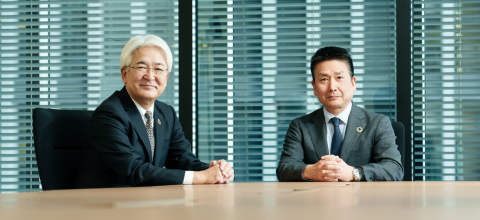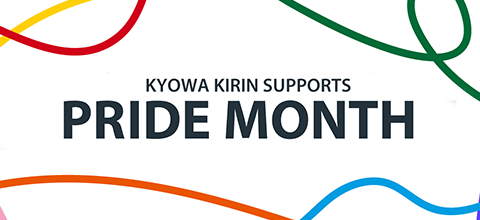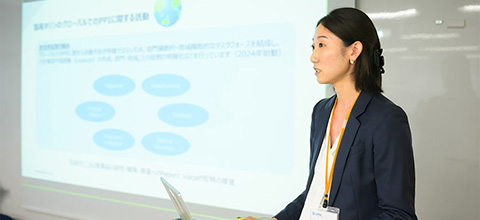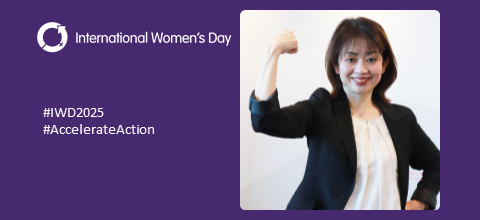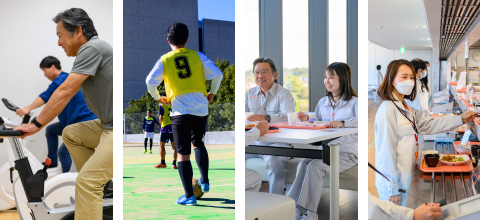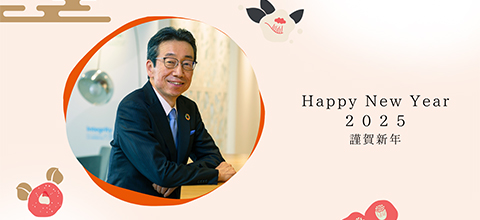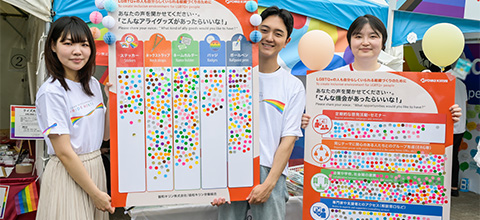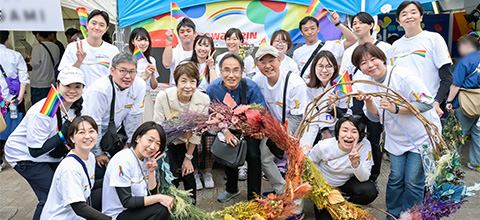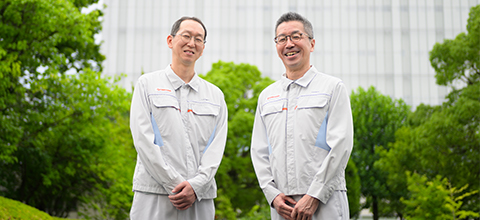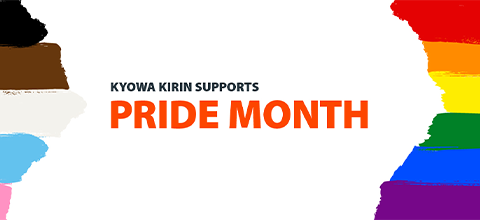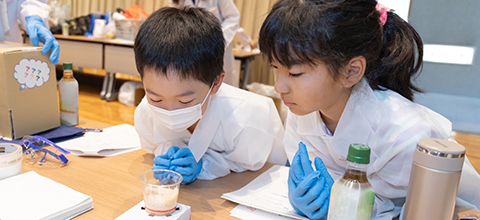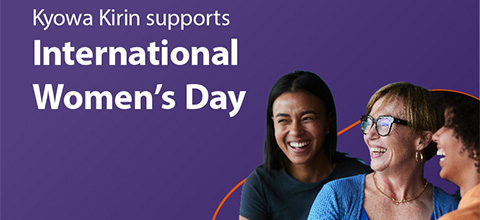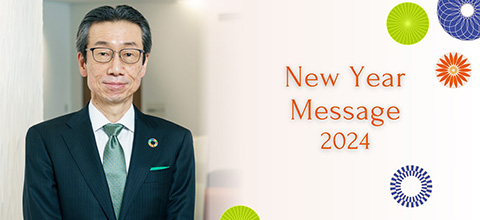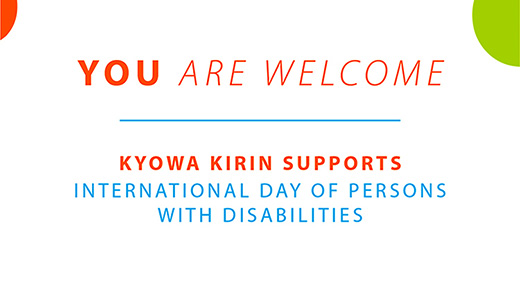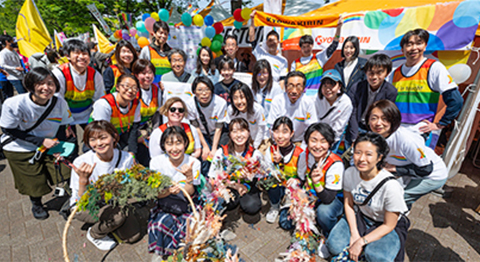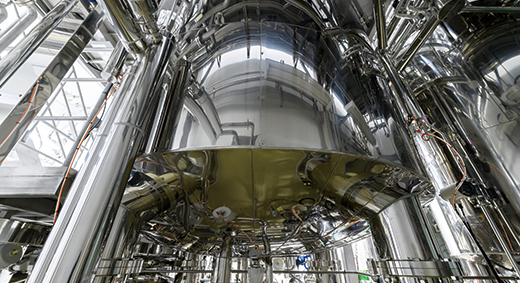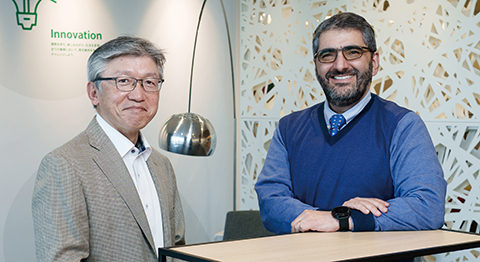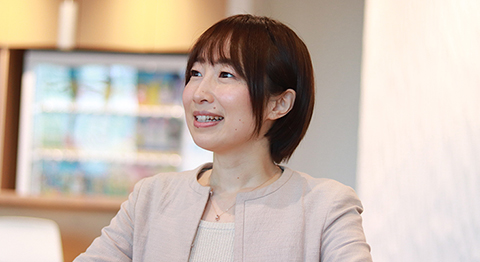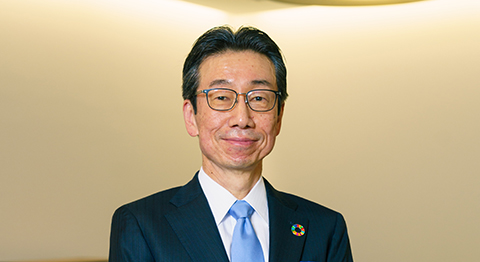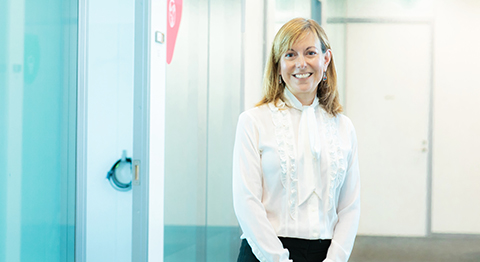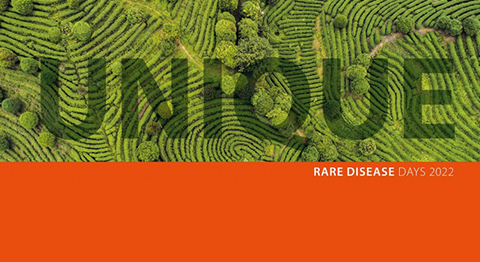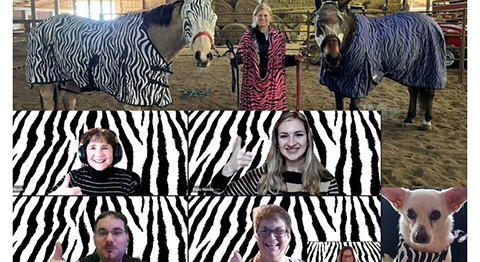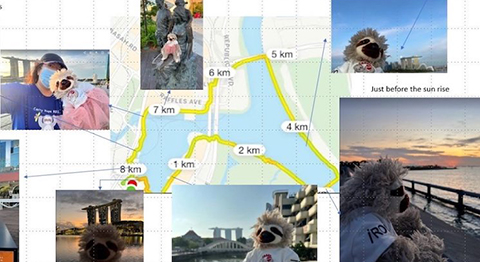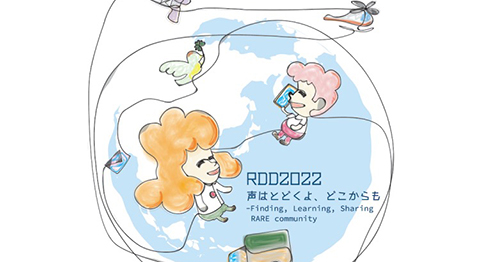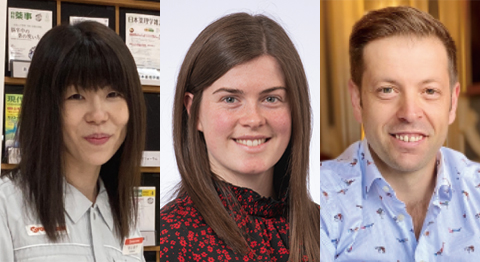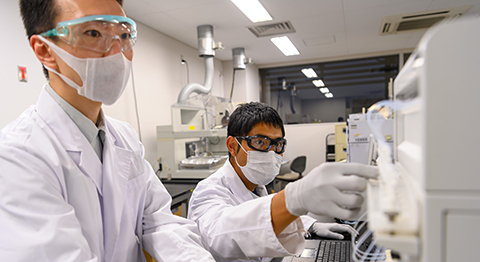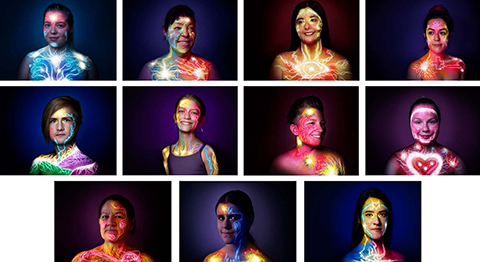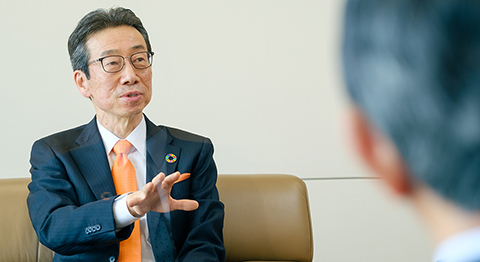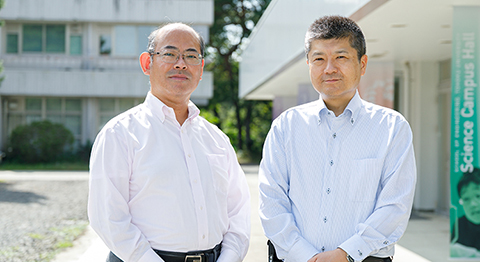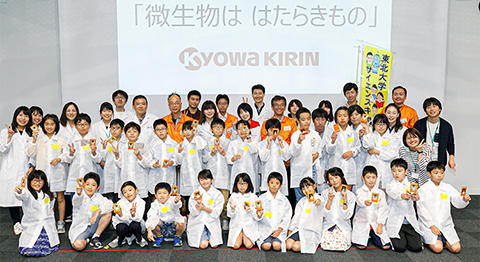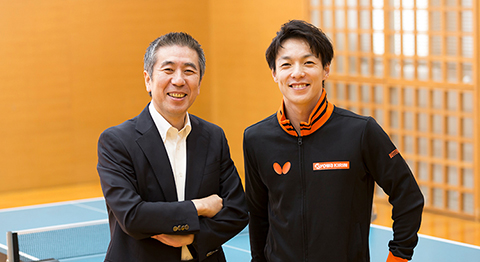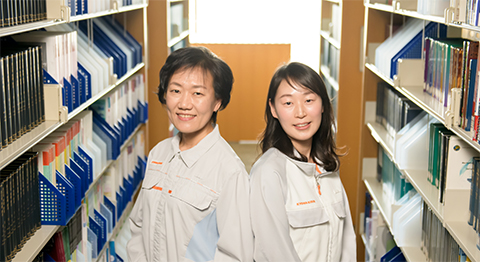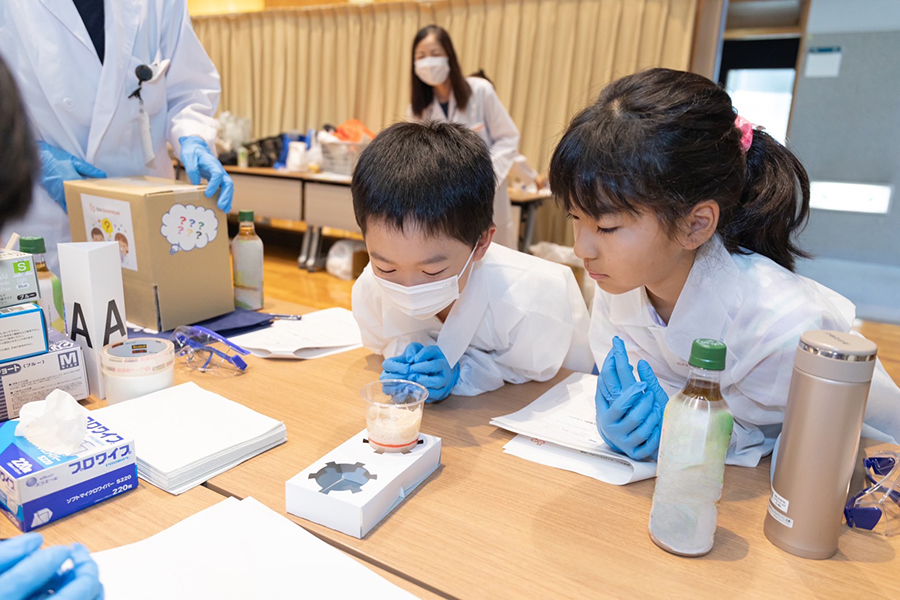
Index
A science education project that has been continuing for over 20 years
A mix of lectures and experiments on the theme of microorganisms
Inspiring children to learn through discovery
Staff were selected via an in-house open call for volunteers
Continue contributing to local communities through learning and discovery
Bio Adventure, a summer camp for elementary school children in fourth to sixth grade, was held on August 11, 2023, at Community Nagaizumi in Shizuoka Prefecture’s Nagaizumi Town. The town is home to Kyowa Kirin’s Fuji Site, which includes Fuji Research Park and CMC R&D Center, and the event was hosted by the Nagaizumi Town Board of Education Lifelong Learning Division.
Employees -of Kyowa Kirin worked as operational staff and provided support for the 23 children who took part. Iwamoto Susumu, Senior Research Scientist at the Research Core Function Laboratories, Research Unit, Research Division, instructed the class. We asked him how Bio Adventure came about and what his thoughts were regarding it.
A science education project that has been continuing for over 20 years
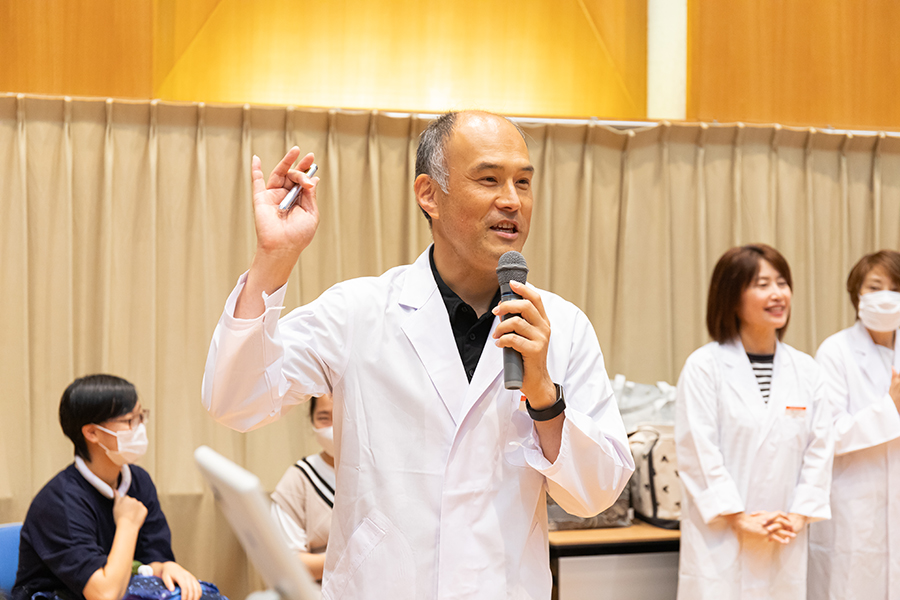
Bio Adventure has won high acclaim, with a total of some 4,800 children having taken part in activities held at Tokyo Research Park alone. In 2016, it received the Minister of Education, Culture, Sports, Science and Technology award, a national award of Japan, in the field of science and technology. Each Bio Adventure program covers themes such as “microorganisms”, “genes”, or “immunity” and features content that capitalizes on Kyowa Kirin’s business and strengths.
A mix of lectures and experiments on the theme of microorganisms
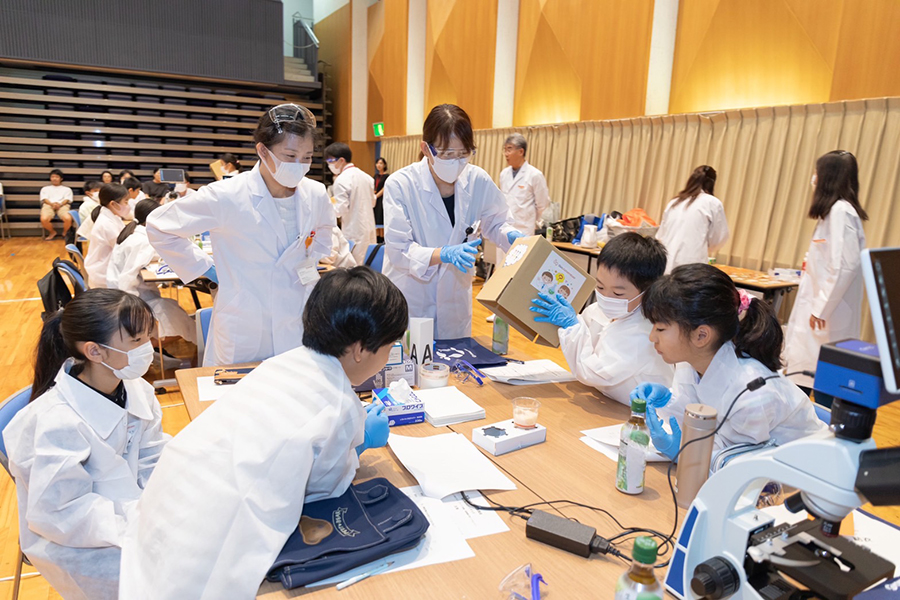
“We chose microorganisms as the theme for the program, since we thought it would be easy for elementary school children in the fourth to sixth grades to relate to. I was once engaged in research aimed at pharmaceutical applications of substances produced by microorganisms in nature. There are many examples of substances produced by microorganisms being used in pharmaceutical products. For example, penicillin, which is a group of antibiotics produced by blue molds, is used to treat infectious diseases.” Entitled “Microorganisms are hard workers,” the day’s program proceeded with a mix of lectures and experiments.
“For many elementary school children, it would be their first time to learn about microorganisms. So, we began the lesson with the basics, such as what microorganisms are and what kinds exist. Next, we explained where they can be found, what they produce and what kind of work they do, which links to the title. We designed the lessons in a way that would let the children have fun and learn at the same time, encouraging them to actively speak up and incorporating a quiz format. We conducted three experiments in between lectures.”
In the experiments conducted, children observed bubbling yeast, petri dishes we had asked them to prepare beforehand, and microorganisms in fermented food. The lessons proceeded with images of the microorganisms seen through a cutting-edge microscope displayed on a monitor.
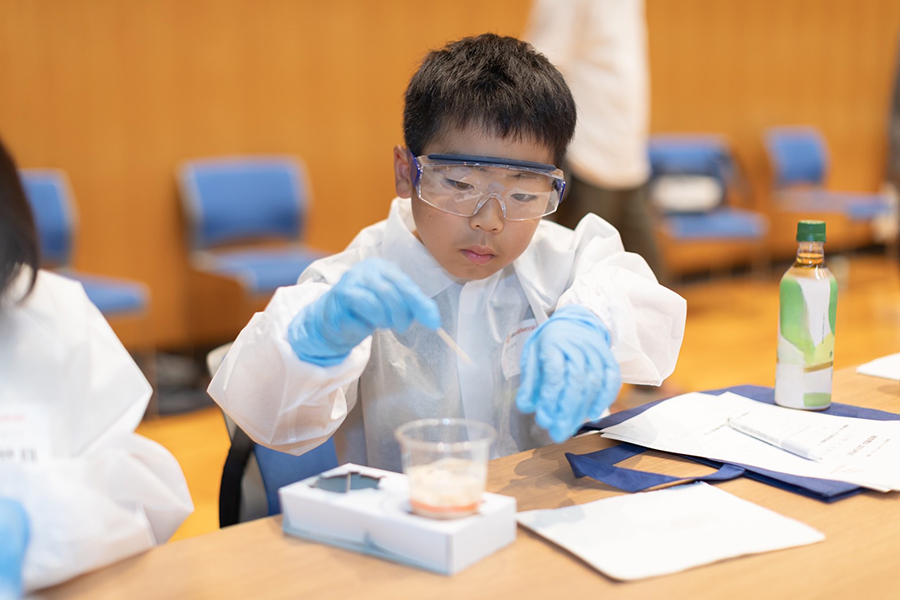
“In the first experiment, they observed the bubbling of yeast. Through this, the children learned how bread rises. We also gave the children quizzes, asking them whether items such as sake, bread, soy sauce, miso and tea are fermented food or not. In the experiment to observe microorganisms in fermented food, the children further deepened their understanding by observing microorganisms in lactic drinks and cheese using a microscope. Kyowa Kirin is a company that developed from the fermentation business, and that foundation was incorporated into the lessons.”
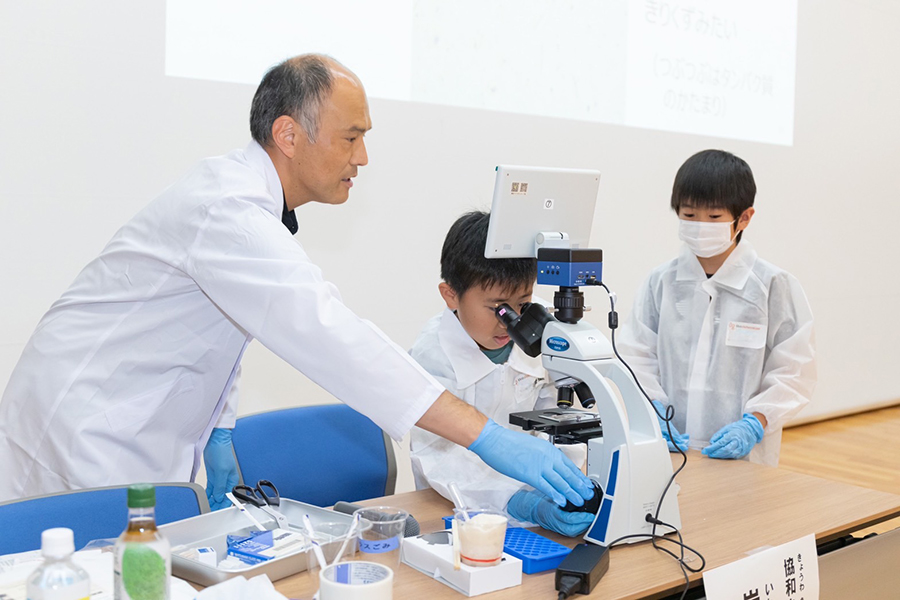
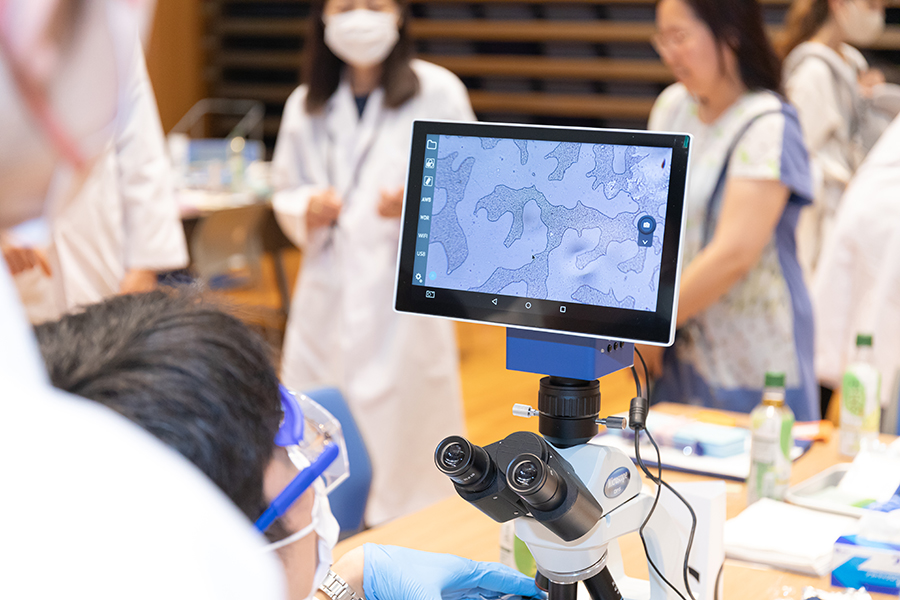
Inspiring children to learn through discovery
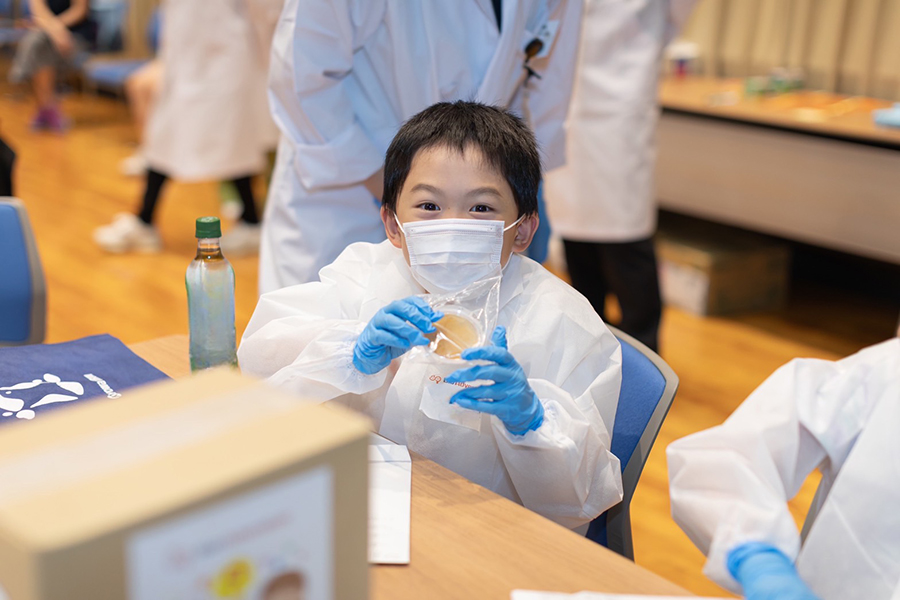
For the next experiment, which was observing the petri dishes the children had prepared, a petri dish with a medium for culturing microorganisms had been handed out in advance (you can see the petri dish in the pouch the boy is holding in the photograph).
“We had asked the children to apply something they thought contained microorganisms on the culture medium, then put the petri dish in an envelope and bring it to the lesson We told them not to look inside the envelope until opening it in the lesson. This allowed the children to experience how microorganisms, which are very small and usually invisible, can be observed by the naked eye when they propagate. We then explained the broad categories of microorganisms, such as mold and bacteria and asked the children to think which category the microorganisms in their dish belonged to.”
Many of the samples the children cultured and thought contained microorganisms were from things generally associated with “dirt”, such as their own fingers, computer mice, dog toys, doorknobs, and saliva.
Staff were selected via an in-house open call for volunteers
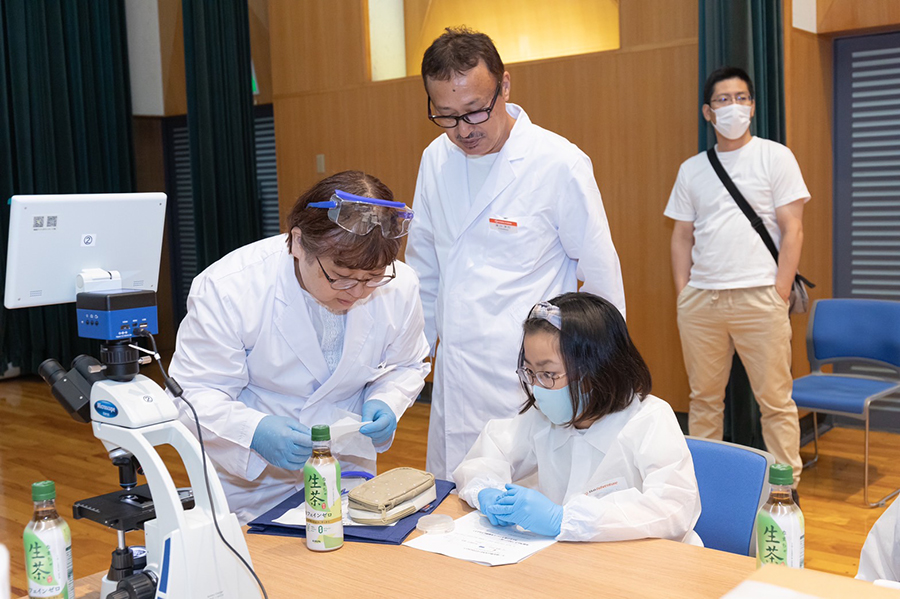
A major advantage of having Kyowa Kirin employees taking part as instructors is that it allows children to become familiar with the work of researchers at pharmaceutical companies.
“It would make us happy if Bio Adventure served as a catalyst for the birth of future scientists and pharmaceutical company researchers. There is in fact a Kyowa Kirin employee who took part in a Bio Adventure activity in Machida City as a youngster.”
The volunteer staff managing Bio Adventure are Kyowa Kirin employees from diverse divisions recruited through an in-house call. A total of around 20 employees took part, assisting the children’s experiments, manning the reception desk and preparing the equipment used in experiments. Iwamoto was one of those who applied and was selected. He had the following to say about the future management of Bio Adventure:
“I have been taking part in Bio Adventure activities as a volunteer staff member for many years. Organizing science lessons for children requires knowhow, experience and teamwork on the part of staff members, and continuity is key. We are now working on creating a new program and we would like to pass on our skills and knowledge to ensure that the activities can be run smoothly even when new staff are placed in charge.”
Continue contributing to local communities through learning and discovery
The children who participated were presented with the lab coat they wore during the experiments and a doctoral certificate with their photo on it, created by the staff.
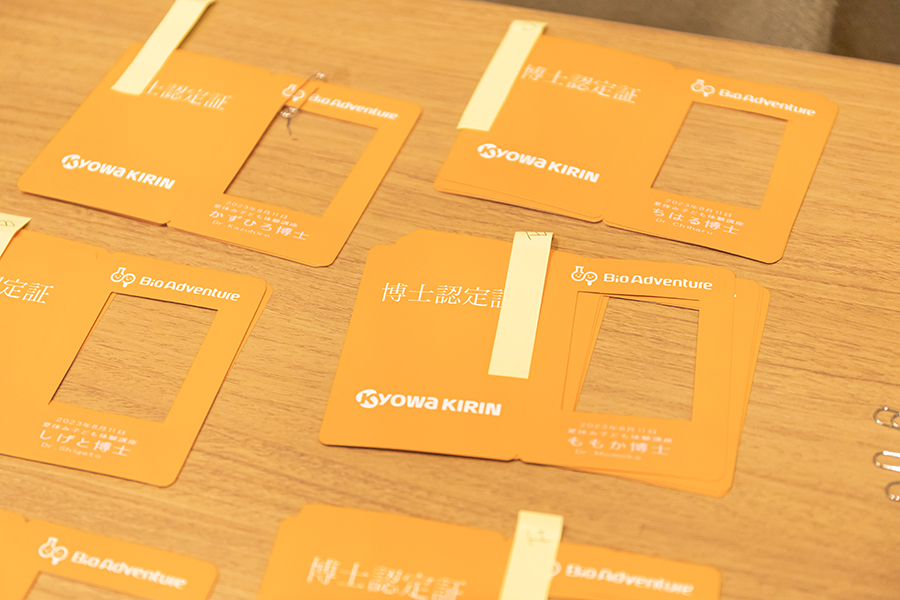
“After the program, we received positive feedback from most children. Some said they had had fun, others said they had enjoyed looking at microorganisms through a microscope, while others said they wanted to learn more about microorganisms. Seeing the children enjoying the experiments both encouraged and energized me. I was also impressed by the interest shown by the parents who had come to watch as they looked into the microscopes with their children. There were also children who commented that they would have liked to have observed more under the microscope, which is something we would like to improve on in the future.”
The feedback we received from the parents later described their children’s behavior at home before and after having participated in the program.
“At home, my child considered what sample to observe, and after agonizing between a game console and a smartphone, chose the game console. Working carefully, they placed the petri dish directly on the game console. It was the first time for my child to wrap a petri dish, so we worked together to wrap it.”
“My child couldn’t visualize the idea of bacteria growing and thought hard about what sample to place on the culture medium. After taking the sample and placing the petri dish in the envelope, they seemed curious as to what was happening inside. When opening the petri dish at the lesson, they were surprised to see that the bacteria had become clearly visible to the naked eye. Probably because the lesson connected to natto bacteria, which was something familiar, my child talked excitedly about natto bacteria even after coming home (laughs).”
Bio Adventure plays a significant role not only in fostering future generations of scientists but also in contributing to local communities.
“Kyowa Kirin desires to contribute to the community by utilizing our expertise as a pharmaceutical company. We believe Bio Adventure is an undertaking in keeping with this desire. In the past, activities organized by the Fuji facility were mostly held on its premises, but that meant participation was mostly limited to local children. By collaborating with the Nagaizumi Town Board of Education’s Lifelong Learning Division as we did this time, we believe we can provide learning opportunities to more children. We hope to deepen our cooperation with local government and continue on with this project”
Kyowa Kirin’s Bio Adventure is more than just an event; aimed at local children and their families, it aims to prevent a decline in interest in science among children and expand their learning opportunities. The project, which aims to foster future scientists and contribute to local communities, will continue to evolve in the future.
